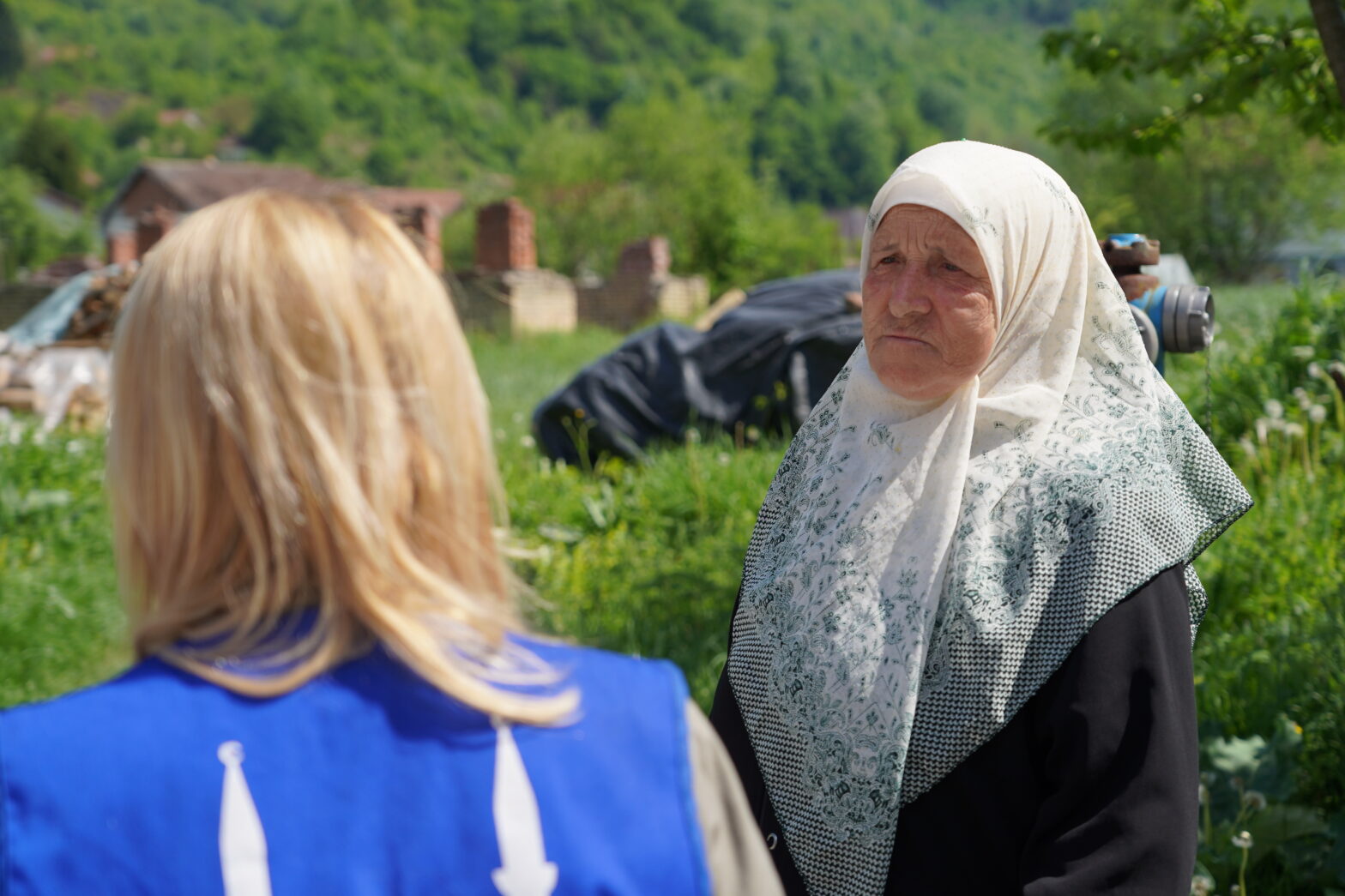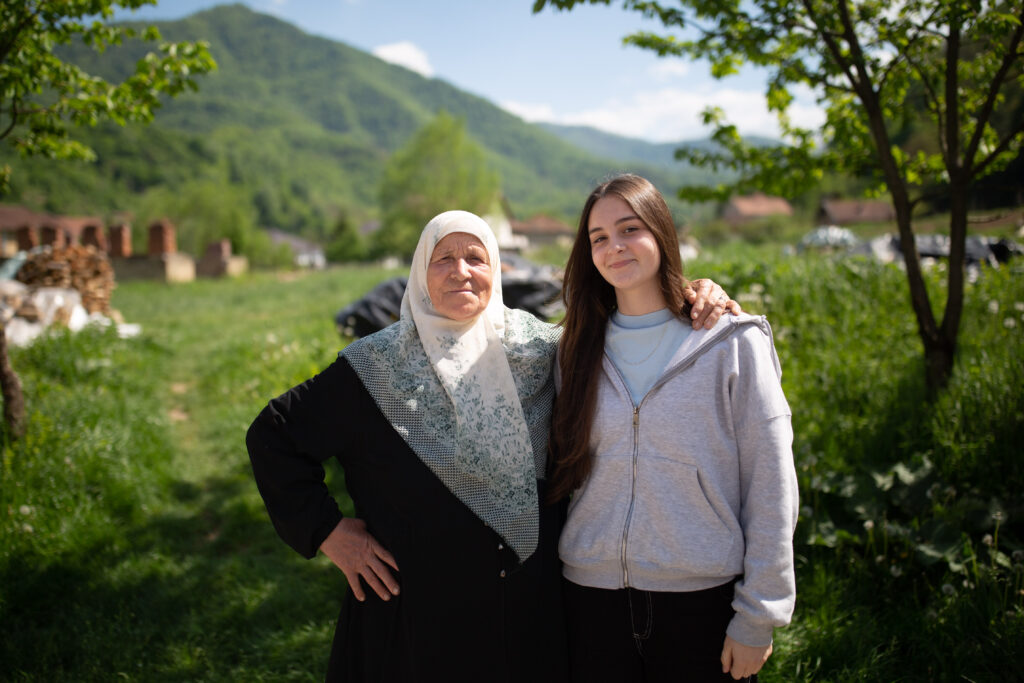
Tima is a 70-year-old survivor of the Srebrenica genocide.
She is a mother to Nedzad and 3 daughters, Hurija, Amela and Inela.
In 1992, her village was attacked, forcing her family to flee. “I had to leave because they set the house on fire. They killed whoever they could. We never returned. Whoever stayed was killed.
I was carrying bags and dragging my children’s clothes [behind us]. I was also carrying my younger children in my arms. It was a battle for survival. The only goal was to stay alive.
When I arrived in Srebrenica, all I wanted was to lay down with my children. I was physically exhausted from carrying my children for 3 months on my back in the snow.
“There was no proper accommodation. The people who were already there did not want to accept us into their own homes, so we had to improvise in the woods by making huts out of plastic and cardboard. The Swedish [NGOs] helped us when they took us into some small houses where the accommodation was much nicer.
“Humanitarian aid started arriving eventually. We received 1kg of flour, and it was supposedly to last us the whole month which is impossible. War is war and it is extremely difficult to survive. Those who received humanitarian aid had a chance of survival, but the ones who did not had no chance. I hope war here never happens again.”
Tima’s husband and son were caught by the Serbian army. Her husband Alija was tragically killed in Kasaba, eastern Bosnia and Herzegovina, while Nedzad was taken to a mass execution site.
All men who were considered to be old enough to fight were taken to the mass execution site. “Nedzad was shot 4 times but, somehow, he survived and managed to make it Tuzla. I remember he was in an extremely poor condition, so bad that he could not even go to the bathroom by himself. I had to help him with everything,” she says.
The 1995 Dayton Peace Agreement ended the Bosnian War, providing people with an opportunity to search for their missing relatives. It was only then that Tima discovered that her husband had died during the fall of Srebrenica in 1995. “I found out when the Red Cross started looking for grave sites after the Dayton Peace Agreement was signed. There was a mass search for missing bodies once the agreement was signed, so that was when they found my husband’s body.”
Tima and 2 of her daughters later received support through Islamic Relief’s Orphan Sponsorship Programme.
“Islamic Relief accepted me and 2 of my children, who were small at the time, into the Orphan Sponsorship Programme. It was good for me as I took a small loan from Islamic Relief which helped me educate my children. I am very grateful to Islamic Relief as I would not have been able to get a loan from anywhere else. I simply wish to thank you a lot and to thank the organisation which sponsored my 2 girls.”
 Tima currently splits her time between Tuzla and Srebrenica, where Nedzad lives, though returning there is still hard for her.
Tima currently splits her time between Tuzla and Srebrenica, where Nedzad lives, though returning there is still hard for her.
“It was not easy for me to return to Srebrenica. When my Nedzad finished his schooling, he was offered a job here. He could not choose the location of the job, which happened to be Srebrenica, so I followed him. I did not want to return.
“It’s nice and for now, it is safe. Once you experience something extremely frightening, even small things shake you up afterwards. I would love to take my son away from Srebrenica, but what can I do? Considering Nedzad is employed here, we must stay here.
“For now, everything is good, my children are doing well thanks to God. I am also healthy even though the years are catching up to me.”



